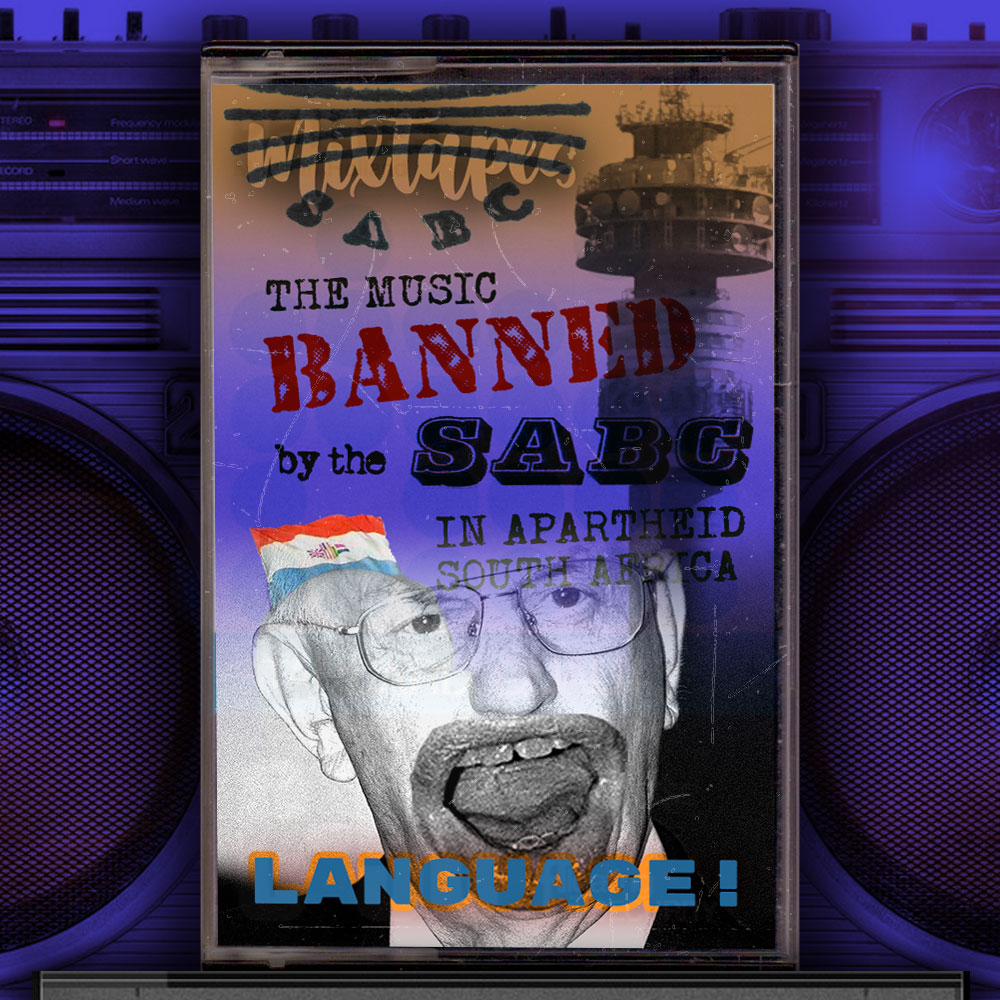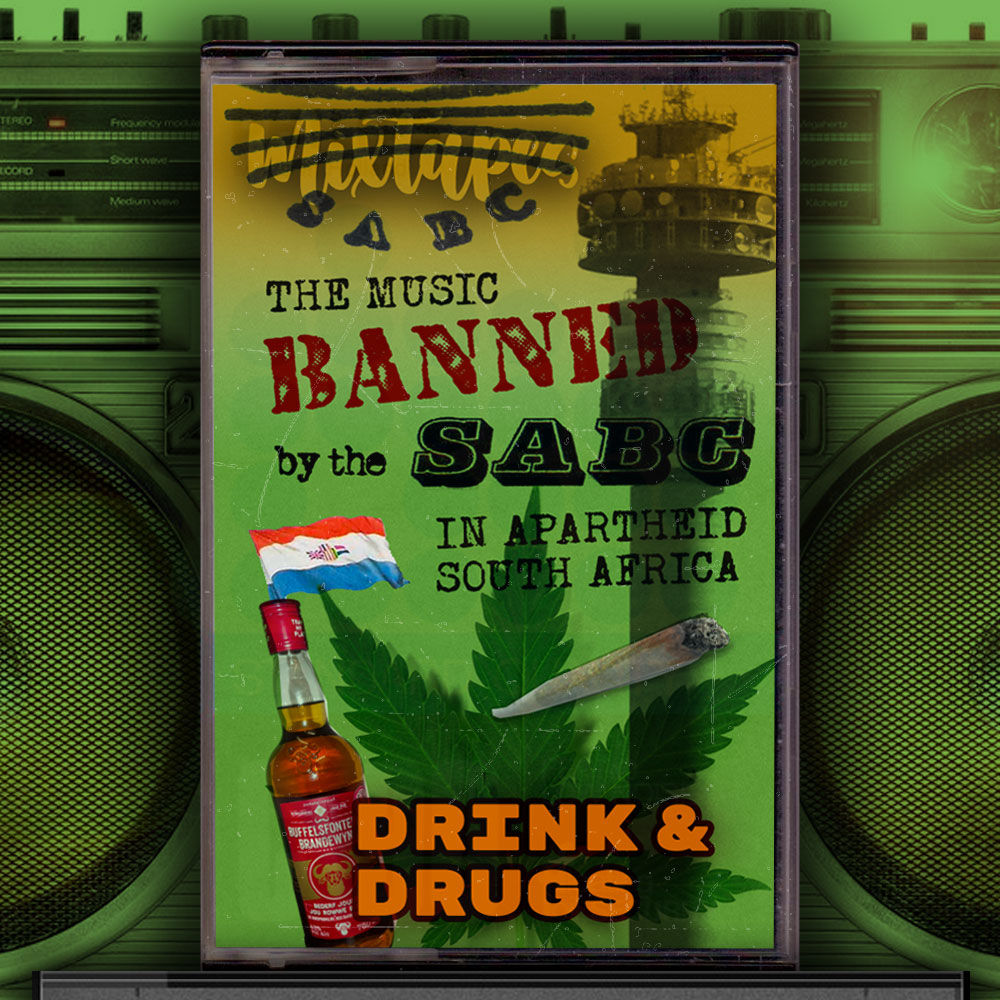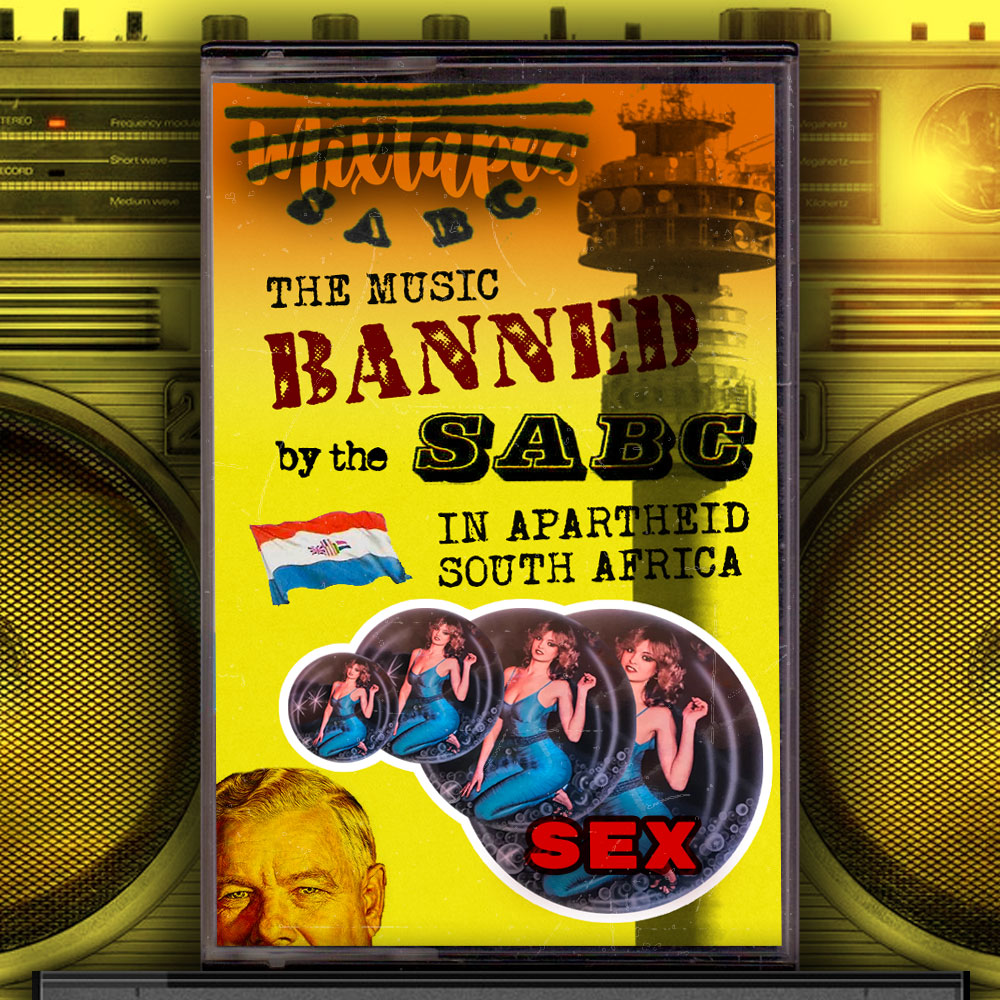
There were two reasons relating to SABC apartheid-era language censorship. First, the apartheid government’s separate development policy affected radio broadcast. There was to be no mixing of languages in songs played on the SABC. The SABC was divided into numerous stations which each catered for a particular language group. For example, there was an English service, an Afrikaans service and seven Radio Bantu stations, each catering for an ‘indigenous bantu’ language. Even the bilingual (English/Afrikaans) Springbok Radio did not allow the mixing of English and Afrikaans in songs. Second, songs were banned if they included what the censorship committee regarded as swear words, or more broadly, obscene language.
On this mixtape songs banned (at least in part) because of the mixing of languages were: “Uhuru” by Sankomota, “Woza Friday” by Juluka, “Boy Van Die Suburbs” and “Bokkie Bokkie” by David Kramer. In all four instances the songs included the sort of phrasing which South Africans used when talking to each other, throwing in a word or more of a different language to express themselves using the nuances of the different languages they were exposed to. But this everyday use of language fell on the monolingual ears of the censors and all were banned from airplay at the time of their release (there was a relaxing of this form of censorship in the mid-to-late 1980s).
The rest of the songs on the mixtape were banned from SABC broadcast because they included obscene language. In some of the cases here there were further reasons for being prohibited from airplay, for example “Paranoia In Parow-Noord” by Koos Kombuis which was banned for using obscene Afrikaans words such as “Doos” and “Fok” but was also banned for drug reference (“Ek rook zol”) and blasphemy (“Maar dank god”).
“Energie” by the Gereformeerde Blues Band included the line “Selfs al kak jy weens die rente” (“Even though you’re shitting yourself over the rent”). Another naughty word which led to songs being banned from airplay was “ass”, as in “All I wanna do is sit on my ass” in Queen’s “Man On The Prowl”, “And you better get your ass out the door” in Billy Joel’s “Ain’t No Crime” and “I’d say we’ve kicked some ass” in “Kickstart My Heart” by Motley Crue. Joan Jett & the Blackhearts also used the word ‘ass’ in “Someday” with the line “‘I’m gonna spit in your face an’ laugh at your ass” but pushed the barrier much too far by also including the line, “listen to me you son of a bitch”. Another word to be exorcised from South African radio was ‘shit’, included in Joe Jackson’s ‘Friday” (“You’ll take any shit”), Prince’s “Housequake” (“My lord (Housequake); My lord (Housequake); Bullshit”), Monty Python’s “ Always Look On The Bright Side Of Life” (Life’s a piece of shit when you look at it”), “Streetwise” by Bros (“You need the shit like a latest trend”) and “Private Life” by Grace Jones (“Attachment to obligation, through guilt and regret, shit that’s so wet”).
If fairly tame words like ‘ass’ and ‘shit’ upset the SABC censors, then more severe words like ‘cunt’ and ‘fuck’ must have sent shudders through the boardroom table and had the censors scrambling for their heart tablets and crucifixes. “F.R.C.” (Fat Rich Cunts) by the Screaming Jets was banned because of the word ‘cunt’ while several songs were banned for uttering some or other variation of the word ‘fuck’: “Had It With You” by the Rolling Stones (“And I love you dirty fucker’”), “The Kiss” by the Cure (“Get your fucking voice out of my head”), Orchestral Manoeuvres in the Dark’s “Crush” (“I can’t stand this fucking rain”) and Soundgarden’s “Big Dumb Sex” with a chorus that goes “I’m gonna fuck, fuck, fuck, fuck you, fuck you”.
Reflecting on apartheid state broadcast censorship through the lens of the examples provided in this mixtape, many musicians would seemingly have concluded that the most obscene four letter word was undoubtedly ‘SABC”.



